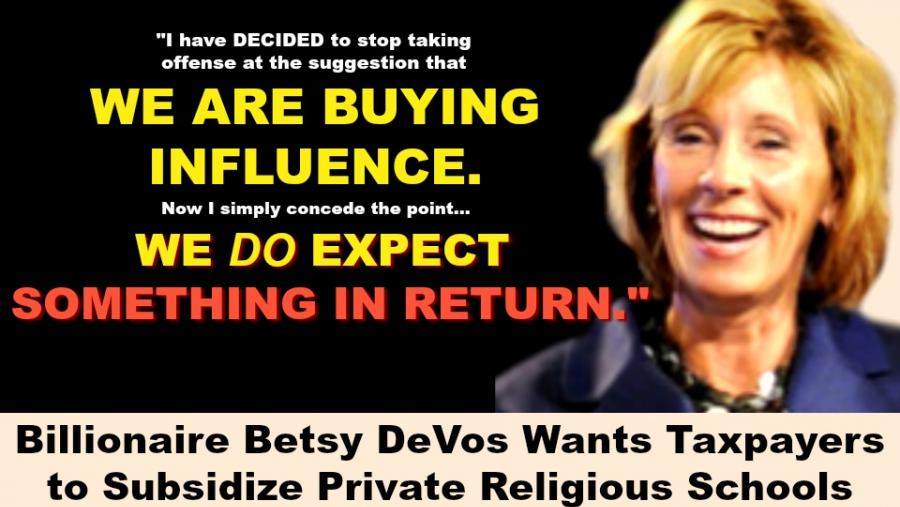How Trump Could Gut Public Education
He wants to redirect federal funds toward school vouchers—and his choice of education secretary shows he’s serious.

School-choice philanthropist Betsy DeVos is set to become Donald Trump’s secretary of education. The school choice movement that Trump has embraced is bipartisan; centrist Democrats and Republicans both tend to support public charter schools. But DeVos, a former chairwoman of the Michigan Republican Party, represents the most conservative corner of the movement. She and her husband have funded a series of efforts to turn public school funding into vouchers for students to attend private schools. They have also fought to prevent charter schools, including for-profit charter schools, from being more tightly regulated.
The DeVos appointment signals that Trump is serious about the $20 billion school voucher plan he rolled out on the campaign trail. The proposal would redirect huge swaths of the federal education budget away from school districts and toward low-income parents, allowing them to spend a voucher at a public or private school of their choice, potentially including for-profit, virtual, and religious schools.
On the plus side, families like having choices. In cities with strong regulations on who can open a public charter school and how it operates, such as New York and Boston, school choice has driven achievement gains for kids. Some private school voucher programs have even produced mild reductions in the racial and socio-economic segregation of poor students of color. Still, the potential downsides are significant. Recent studies of voucher programs in Louisiana and Ohio found that students who use vouchers to attend a private school score, on average, lower on standardized tests than demographically similar students who do not use vouchers. In New Orleans, two years after winning a private school voucher, the average student had lost 13 points of learning in math. The reasons why point to the shortcomings of the Trump proposal. The modest size of the voucher, about $5,500 in Louisiana, was not large enough to persuade the most exclusive private schools to accept a more challenging student population. Many of the private schools that did accept vouchers had experienced previous enrollment declines, indicating they were unpopular with parents who could afford to pay tuition on their own.
Public school student achievement in New Orleans has improved in recent years, in part because of increased family choice among nonprofit charter schools. But according to Douglas Harris, an economist at Tulane University and director of the Education Research Alliance for New Orleans, “We’ve never seen an effect as negative as the private school voucher program.” Harris doesn’t expect this evidence to dissuade Team Trump. “Of all the ideas I’ve heard bandied about in various policy areas, this is the one most likely to happen. Trump is talking about it and clearly thinks it’s a good idea. Republicans love this. Most policy is going to be driven by Congress, probably even more so under Trump than any previous administration. This is what they want to do. The stars are aligned.”
Trump first rolled out the voucher plan out in early September, on the day he visited the Cleveland Arts and Social Sciences Academy, a for-profit charter school that received grades of D and F on a 2014–15 state report card, for failingHow Trump and Education Secretary Betsy DeVos could gut public education.:
